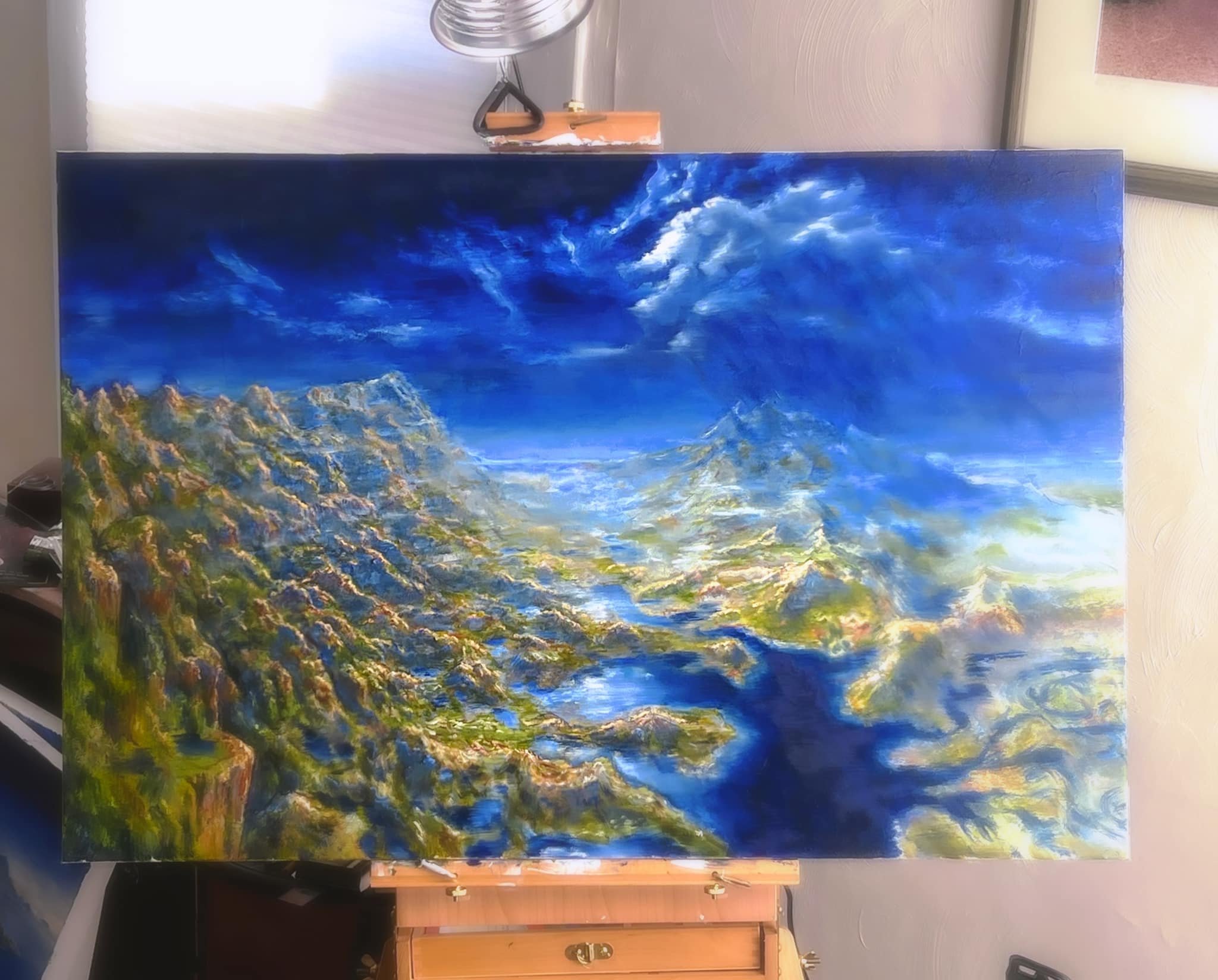About
(540) 728-8283
I began life as a college professor, teaching French language, literature and cultural literacy. An artistic undercurrent pervaded my academic studies, though, and I found myself wearing many artistic hats, variously: that of typographer, paleographer, author, poet, composer...—in the classroom and outside it. I started experimenting with portraiture early on (studying and improving upon Galton’s compositing techniques from the 19th century), and developed an eye for Leonardo and Rembrandt, and for the Early Modern psychological portrait. For my fiftieth birthday I painted two master studies in oil, of the Mona Lisa and of Vermeer’s “Young Woman Reading a Letter by an Open Window”.
My first solo show debuted in June 2022, at Gallery 202 in Roanoke, collecting 37 works from my first year as a full-time artist. Those works showcased pen-and-ink, charcoal and oil techniques across a spectrum of genres, from landscape to still-life, to single- and double portraiture.
At present I am crafting a show called “The Sentinel” after the Arthur C. Clarke short story of the same name: landscapes—and architecture in the landscape—portraying the timelessness and awesome weight of history, what Stanley Kubrick would call “the loneliness of worlds”. My show opens in my home gallery in Roanoke in Fall 2023. Viewers of “The Sentinel” will note the collision of geology, architecture, history and archeology; they will be transported to prehistory in landscapes as diverse as Santorini, Alexandria, and the Great Rift Valley, all beneath skyscapes of uncanny blue.
My artistic practice derives from traditional literary practice of the Early Modern era, whereby authority is gained first ancient work bearing its own authority), then through “imitatio” (imitation of an authoritative work), to the end of developing and asserting one’s own authority. In my current work I am distilling authoritative brushwork (borrowed, I think, from Rembrandt and Klimt) and combining it with my academic work in paleography—ultimately informing my own style.
I am untrained, yet have some skill in sketching, and on top of it all, I am rather red-green colorblind. Stylistically my brushwork is calligraphic and my blues (at least) are deep, gorgeous and substantial—le fameux bleu de Chartres.
My thematic concerns revolve around the problem of Paradise—where it can be found, whether we are already living it, and whether it can be portrayed at all.






